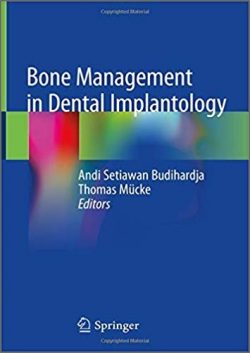This book describes the challenges that deep carious lesions pose for dental practitioners, including the risk of endodontic complications and the difficulty of restorative treatment, and identifies options for overcoming these challenges on the basis of the best available evidence. The opening chapter sets the scene by discussing pathophysiology, histopathology, clinical symptomatology, and treatment thresholds. The various treatment options are then systematically presented and reviewed, covering non-selective, stepwise, and selective carious tissue removal and restoration, sealing of lesions using resin sealants or crowns, and non-restorative management approaches. In each case the current evidence with respect to the treatment is carefully evaluated. Advantages and disadvantages are explained and recommendations made on when to use the treatment in question. Illustrative clinical cases and treatment pathways for clinicians are included. This book will be of value for all practitioners who treat dental caries and carious lesions, whether in the permanent or the primary dentition. It will also be of interest to under- and postgraduate students in cariology and restorative, operative, preventive, and pediatric dentistry.
Managing dental caries.- Stepwise excavation.- Caries sealing using resins.- ART.- Caries sealing using PMCs.- Inactivating carious lesions: NRCT.- Summary and recommendations, clinical pathways.
Falk Schwendicke is Deputy Head of the Department of Operative and Preventive Dentistry at Charité – Universitätsmedizin Berlin, Germany and a Visiting Fellow at the University of Otago, New Zealand. Dr. Schwendicke is also an Associate Editor of BMC Trials and on the Editorial Board of Community Dentistry Oral Epidemiology. Dr. Schwendicke graduated in Dentistry in 2008 from Charité – Universitätsmedizin Berlin and subsequently worked in general practice in Germany and the UK. In 2013 he was appointed Associate Professor and Head of Section for Cariology and Preventive Dentistry at Charité – Universitätsmedizin Berlin, subsequently taking up his current post in 2015. Dr. Schwendicke holds a PhD (for a thesis on selective excavation) from Charité – Universitätsmedizin Berlin and a Master of Dental Public Health (MDPH) from the University of Manchester. His research interests include the minimal and microinvasive treatment of carious lesions and evidence-based dentistry and translational research. He is a member of the editorial boards for the Journal of Dental Research and the International Journal of Dental Hygiene and has published numerous original articles in peer-reviewed journals. In 2015 he received the Lion Dental Research Award from the IADR.
This book describes the challenges that deep carious lesions pose for dental practitioners, including the risk of endodontic complications and the difficulty of restorative treatment, and identifies options for overcoming these challenges on the basis of the best available evidence. The opening chapter sets the scene by discussing pathophysiology, histopathology, clinical symptomatology, and treatment thresholds. The various treatment options are then systematically presented and reviewed, covering non-selective, stepwise, and selective carious tissue removal and restoration, sealing of lesions using resin sealants or crowns, and non-restorative management approaches. In each case the current evidence with respect to the treatment is carefully evaluated. Advantages and disadvantages are explained and recommendations made on when to use the treatment in question. Illustrative clinical cases and treatment pathways for clinicians are included. This book will be of value for all practitioners who treat dental caries and carious lesions, whether in the permanent or the primary dentition. It will also be of interest to under- and postgraduate students in cariology and restorative, operative, preventive, and pediatric dentistry.
Systematically presents and reviews the available treatment options
Makes evidence-based recommendations on the use of each treatment
Includes illustrative clinical cases and treatment pathways for clinicians





